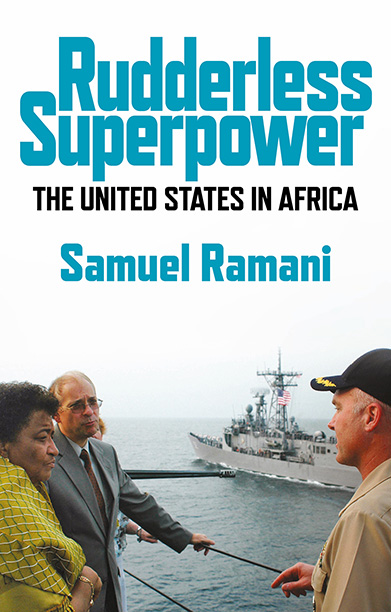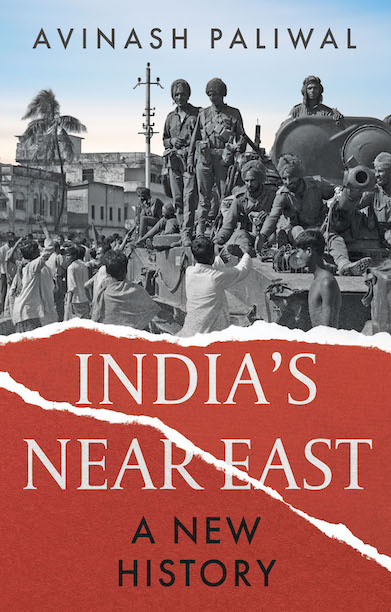The Blood Telegram
Nixon, Kissinger and a Forgotten Genocide
Pulitzer Prize Finalist 2014
WINNER of the Cundill Prize for Historical Literature 2014
WINNER of the Lionel Gelber Prize 2014
New York Times, Economist and Financial Times ‘Book of the Year’
Description
The Blood Telegram is an unprecedented chronicle of a pivotal but little-known chapter of the Cold War. Gary J. Bass shows how Nixon and Kissinger supported Pakistan’s military dictatorship as it brutally quashed the results of a historic free election. The Pakistani army launched a crackdown on what was then East Pakistan (now Bangladesh), killing hundreds of thousands of people and sending ten million refugees fleeing to India — one of the worst humanitarian crises of the twentieth century.
Driven not just by Cold War realpolitik but by a bitter personal dislike of India and its leader Indira Gandhi, they silenced American officials who dared to speak up, secretly encouraged China to mass troops on the Indian border, and illegally supplied weapons to the Pakistani military — an overlooked scandal that presages Watergate.
Drawing on previously unheard White House tapes, recently declassified documents, and extensive interviews with White House staffers and Indian military leaders, The Blood Telegram tells this thrilling story for the first time. Bass makes clear how the United States’ embrace of the military dictatorship in Islamabad would mould Asia’s destiny for decades, and confronts for the first time Nixon and Kissinger’s hidden role in a tragedy that was far bloodier than Bosnia. This is a revelatory, compulsively readable work of politics, personalities, military confrontation, and Cold War brinksmanship.
Reviews
‘Devastating … Excellent … Bass has written an account—learned, riveting, and eviscerating—of the delusions and the deceptions of Nixon and Kissinger. Steeped in the forensic skills of a professional academic historian, he also possesses the imaginative energies of a classical moralist, and he tells the story of the choices and the decisions that led to the slaughter in Bengal … appropriately as a moral saga … Indispensable.’ — Sunil Khilnani, The New Republic
‘Absorbing … Bass draws up a severe indictment of Nixon and Kissinger.’ — Pankaj Mishra, The New Yorker
‘[A] gripping and well-researched book . . . Sheds fresh light on a shameful moment in American foreign policy … Admirable clarity.’ — The Economist
‘A riveting read with direct relevance to many of the most acute foreign-policy debates of today.’ — Gideon Rachman, Financial Times
‘This is a dark and amazing tale, an essential reminder . . . Nixon and Kissinger spent the decades after leaving office burnishing their images as great statesmen. This book goes a long way in showing just how undeserved those reputations are.’ — Dexter Filkins, The New York Times Book Review
‘Bass takes us inside the Oval Office to reveal the scandalous role America played in the 1971 slaughter in what is now Bangladesh. Largely unknown here, the story combines the human tragedy of Darfur, the superpower geopolitics of the Cuban missile crisis and the illegal shenanigans of Iran-contra … [A] harrowing tale.’ — Peter Baker, The New York Times
‘Blistering . . . [A] must-read.’ — The New York Post
‘Gary Bass has provided us with a helpful reminder of Nixon’s true character. In The Blood Telegram, Bass expertly recounts the stunning indifference of Nixon and … Henry Kissinger to the reports from US diplomats of Pakistani genocide … Vivid, often disquieting detail from Oval Office tapes unearthed by Bass … Bass has performed an essential function.’ — Michael Cohen, The Guardian
‘[A] stellar new book … Astonishing … [A] meticulously researched and searing indictment of the shameful role the United States played … The book tells of the damage wrought when world leaders abandon rational calculation and allow their country’s interests to be subordinated to personal prejudices and animosities.’ — Foreign Policy
‘[A] superb book … Bass deploys White House recordings, including several new transcripts, to excellent effect, and … the book contains enough material to make the reader sick … Astonishing … A morally serious book that nevertheless reads like a first-rate novel.’ — The Times Literary Supplement
‘A profoundly disturbing account of the hitherto hidden role of Nixon and Kissinger in the slaughter of hundreds of thousands … Bass has defeated the attempted coverup through laborious culling of relevant sections of the Nixon White House tapes, declassified State Department documents and interviews with former officials, American and Indian, who were involved … After reading Bass’s account of this shameful episode, one has to … conclude that where the Bengalis were concerned, Kissinger and Nixon simply did not give a damn.’ — Neil Sheehan, The Washington Post
‘It was a non-subject for scholars, a no man’s land for knowledge … [u]ntil the arrival of a memorable book by Gary Bass … While doing justice to the victims, also, for the first time, draws out for us its lessons … The book is also a tribute to politics in its true sense … I do want readers to be aware of the appearance of Gary Bass’ book, which I hope will be widely read (and translated into French!) … A return to Bangladesh is required reading.’ — Bernard-Henri Lévy, Le Point
‘Bass has written the definitive account of the political machinations behind one of the worst (and most widely ignored) humanitarian crises of the 20th century … Bass also offers Americans much-needed context about America’s pre-9/11 involvement in a region where it still finds itself with bloody hands … The Blood Telegram offers a nuanced yet unflinching look at the juxtaposition of geopolitics and humanitarian crisis. Bass shines a much-needed spotlight on yet another dark corner of modern American history.’ — Nick Turse, The Daily Beast
‘With urgent, cinematic immediacy, Gary Bass reconstructs a critical — and, to this day, profoundly consequential — chapter of Cold War history defined by appalling American complicity in genocidal atrocity, and terrifyingly high-stakes superpower brinksmanship. It is a story of immense scope, vividly populated by figures of enduring fascination, and ripe with implications for the ongoing struggle to strike a more honourable balance between wartime realpolitik and our ideals of common humanity.’ — Philip Gourevitch, author of We Wish to Inform You That Tomorrow We Will Be Killed With Our Families
‘Gary Bass has excavated a great tragedy, one that’s been forgotten by Americans but is seared into the memory of South Asians. His talents as a scholar, writer, and foreign-policy analyst are on full display in this brilliant work of narrative history. Nixon and Kissinger come damningly alive on the pages of a book that shows, like nothing else I’ve read, the folly that goes by the name of “realism”.’ — George Packer, author of The Unwinding: An Inner History of the New America
‘Gary Bass has done it again, uncovering a dark chapter in the historical record and bringing it vividly to light, forcing us to confront who we were then and who we are now. The Blood Telegram is a richly textured story with many fascinating layers, from the moral bankruptcy of U.S. leaders in the face of genocide to the multi-faceted politics of South Asia and the lasting geopolitical legacy of these events. It’s also simply hard to put down!’ — Anne-Marie Slaughter, author of A New World Order
‘Gary Bass is unique: an investigative historian who explores the past in a masterly way that combines the best of journalism and scholarship. His latest book reads like an urgent dispatch from the frontline of genocide, a lucid and poignant description of a moral collapse in American foreign policy. Bass has painstakingly written a vital history—and a story, in the best sense of the word—that we must come to grips with.’ — Peter Maass, author of Love Thy Neighbor: A Story of War
‘Bass, a reporter turned academic, displays great forensic skill, using secret Whitehouse tapes to show how Nixon and Kissinger covered up their responsibility for the slaughter. Even now, much material remains a secret.’ — History Today
‘The Blood Telegram convincingly unravels the rather shocking truth of the American position in the Pakistan crisis in a well-written narrative … This book has the potential to fuel international lawyers to research the legal consequences of the passive stance taken by Nixon and his underlings.’ — LSE Review of Books
Author(s)
Gary J. Bass is the author of Freedom's Battle: The Origins of Humanitarian Intervention and Stay the Hand of Vengeance: The Politics of War Crimes Tribunals. He is a professor of politics and international affairs at Princeton University. A former reporter for The Economist, he has written often for the New York Times, and has also written for The New Yorker, theWashington Post, the Los Angeles Times, the Boston Globe, The New Republic, Foreign Affairs, Foreign Policy, Slate, and other publications.






